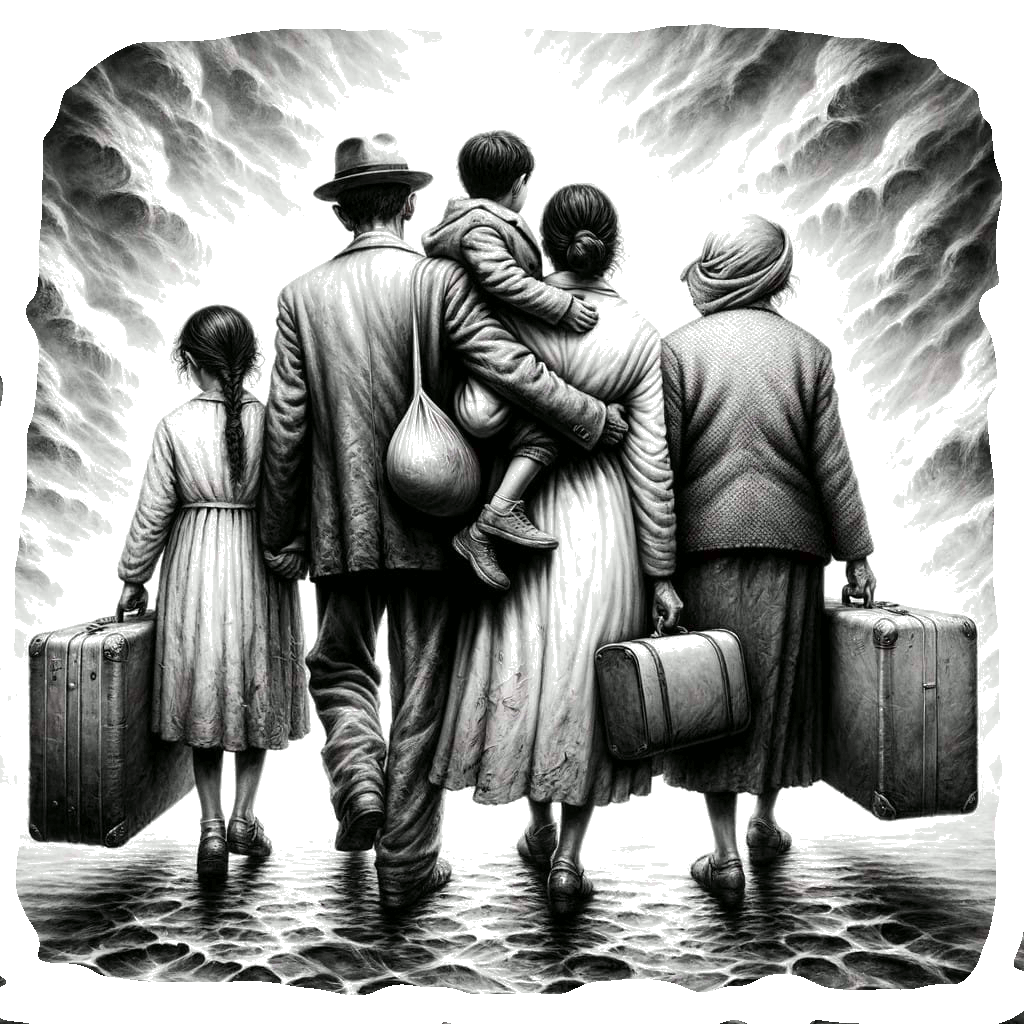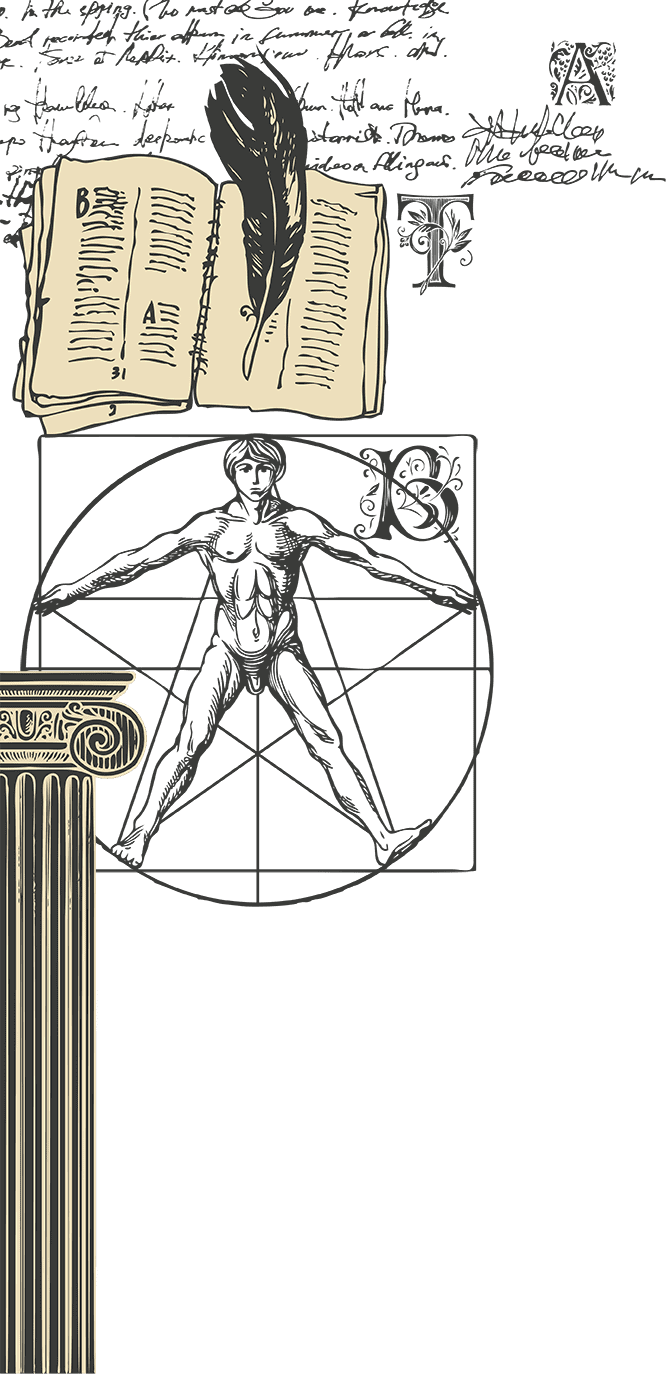
Just as when one stands unbearably close to a mirror, the immigrant’s identity refracts, distorts, and dissolves into an unrecognisable abstraction of oneself. He exists, for a time, in the interstice between two worlds – neither a member of the society he left behind nor yet fully integrated into the one he tried to enter. The analogy, perhaps, is not without its element of irony – for isn’t it an inherent desire to see oneself in a fuller, more complete light that propels one to cross borders and seas?
The immigrant often seeks refuge in an alien land from the vortex of a sinking ship, a country adrift on the tumultuous seas of religious fervour and political apathy. From fields tilled under a blazing sun by men robbed of education and critical thought, mere beasts of burden yoked to the relentless plough of life.
Our protagonist, then, was a man of such grit and circumstance. He packed his life into a suitcase, waved goodbye to the Asian subcontinent, and found himself in the greys and greens of England. He soaked in the solemn grandeur of Gothic cathedrals, the quaint allure of cobblestone streets, the quiet dignity of ageing mansions – all while standing, he realised, on the periphery. Admitted on the terms of tolerance, but never of acceptance.
Yet, as years transformed into decades, he observed a startling metamorphosis. Streets once echoing with polite conversation now resonated with the metallic clang of conflict. The erstwhile pristine towns, nestled like hidden gems in the verdant English countryside, were scarred by serrated blades, their beauty masked by the palpable fear.
The constabulary, once symbols of safety and order, now appeared skittish, hiding behind the very shelters they were meant to safeguard. The bucolic parks, erstwhile a playground of imagination and tranquillity, had become gauntlets of trepidation—the peace of the evening stroll disrupted by the harsh whispers of lurking danger.
A twilight eeriness had descended upon this once-magnificent nation. The immigrant, now more resident than a visitor, gazed upon the reflection of this altered reality. No longer an alien figure fragmented in a mirror, he saw the disturbingly familiar face of social decay, a resemblance shared with the home he’d left behind decades ago. A sinking ship here, a raft there – was there an ark that remained afloat, he wondered?
And then comes the tragic irony – the revelation that anarchy is not exclusive to the so-called backward nations. It festers, perhaps even more violently, within the underbelly of societies that have long boasted of their progressive enlightenment. These bastions of modernity, it seems, are not immune to the entropic pull towards chaos and disorder.
It becomes evident, upon this grim tableau, that man, when left to his own devices, doesn’t always aspire for loftier heights but often slips into the recesses of base instincts. He finds himself tangled in the shackles of convenience and complacency, choosing not to soar like an eagle but to burrow like a worm.
To gaze upon this transformation, to bear witness to the fall from grace, is to question the inherent nature of man himself. Can we overcome our instinctual tendencies and rise above the pettiness that tethers us to the ground? Or are we doomed to crawl in the dirt, destined never to take flight in the vast skies of potential that stretch out above us?
To what shores must we sail next?
